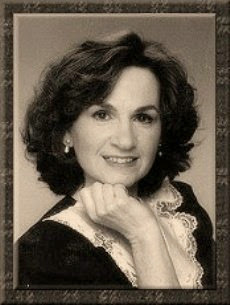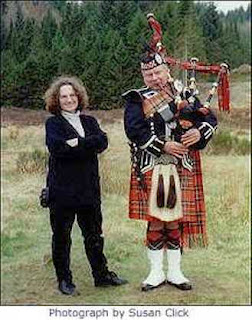.jpg)
Today we have an interview with our Featured Author Susan Fraser King. Leave a comment on the blog and you may win a copy of her novel, Lady Macbeth.
Please tell readers about yourself and your background.
Born and raised in upstate New York, I now live in Maryland, married with three wonderful sons. I’ve loved writing, art, history and historical fiction since childhood. Those interests led me to degrees in art and art history, with graduate studies in medieval. I began writing fiction and was first published when my kids were in grade school. Now that they’re older, I’m still writing, and still loving history and art.
Lady Macbeth is your most recent release, now available in paperback. Please tell us about the story.
Lady Gruadh, called Rue, is the last princess of an ancient royal Scottish line. Raised in a warrior society with the freedoms accorded women in early Gaelic cultures, she is as familiar with a sword as an embroidery needle. Soon after her marriage to a powerful northern lord, she is widowed while pregnant, and forced by victor’s right to marry her husband's murderer: a rising warlord named Macbeth. As danger threatens Scotland from Vikings, Saxons, and treacherous Scottish lords, Rue begins to respect the man she once despised. Macbeth’s ambitions extend far beyond the northern region – but among powerful warlords and their steel-games, only the privileges of Rue’s royal blood will help Macbeth reach his goal of becoming high king. With a small son and a proud legacy to protect, Rue invokes ancient wisdoms and practices and discovers her own strength as she holds her own in the fierce climate of 11th century Scotland.
Lady Macbeth is rich in detail. How did you do your research?
I started out with a great deal of deep library research and a good bit of Internet, too, (though I did more library work – there’s nothing like the atmosphere of libraries and the feel of books, pages and papers), and did my best to sort out a very complex historical picture. Very little is known about Lady Macbeth, and most of the information is deduced from what is known of the men who surrounded her. I studied the history, culture and society of early medieval Scotland, branching out into folk traditions, literature, art, music, magic, weapons, artifacts and costume, to piece together an authentic picture of 11th century Scotland.
Some of my conclusions may surprise readers, or sound invented for popular fiction – not so. For example, it is entirely possible, even likely, that this 11th c. Scottish Highland princess would have been more of a warrior woman than a “typical” medieval queen. I studied historical sources from medieval to current, focusing on recent research regarding Macbeth and early Scotland, and drew some original conclusions, and I was always careful to check with experts in several areas. I am very fortunate and grateful for the support of a foremost historian in Celtic and medieval studies, who discussed the history with me and read the manuscript in draft form, and gave it thumbs up. That meant a lot to me.
Gruadh, your protagonist, was made famous in Shakespeare’s play. What were some of the things you enjoyed in writing about her? Were there any perceptions from the play that were a challenge to overcome in your writing?
Lady Macbeth’s notoriety is ingrained in our culture, and familiar to almost anyone who has sat through high school English classes. At first, I too approached her from that place established by Shakespeare – but I wanted to find the real woman. My character is not based on Shakespeare’s lady. I was fascinated by who she might have been, and the story evolved from my curiosity. After a while the playwright’s version didn’t matter—the whole thing became intriguing and fun.
I included subtle references to the play here and there, which was fun to do, and some parts of the novel do touch on basic historical events in common with the Shakespeare. The historical sources today are way better than what was available to Shakespeare. It’s interesting to imagine how different his play would be if he had access to the rich material we have now – yet his Lady Macbeth is a deep and brilliant character study, less tied to a particular place and time.
How did your research affect your previous impressions of King Macbeth?
I knew that King Macbeth and his queen had gotten a bum rap (she’s known as Queen Gruoch in most historical works, but I gave her the Old Irish name Gruadh, which belonged to her great-granddaughter, so it made sense to me). The modern view of Macbeth as a strong and stable king holds up in the research from the Victorian age on, reinforced by 11th century sources. Later medieval sources—which Shakespeare might have seen—tend to bash Macbeth, thanks to the Canmore kings.
In the last few years, there’s been interest in Scotland in restoring the good name of the much-maligned Macbeth. That goes for his queen, too. I’m happy to contribute something toward that.
The setting of Lady Macbeth is wild and romantic Scotland. Did you visit any of the places in your story? Did you discover any gems or surprises which you incorporated in your writing?
I’ve been to Scotland several times, and have visited many of the places featured in the book, and luckily have friends in Scotland who live near some of the other sites in the story. One lovely contribution came from a friend who pointed out rather pragmatically that my characters would just take a boat from a certain point to another, rather than cross some challenging terrain, as historians had described as happening. This changed a key scene for me, which was a huge help. Traveling to a place one is writing about, if it’s possible, always helps a book –atmosphere, the sense and feel of the place, the little casual details of the senses are not easy to absorb from research alone. It can be done, though, either way.

Have you always wanted to write historical fiction?
Always! With my graduate background and a love of writing, historical fiction was perfect for me. Historical story ideas come to me often, , though I do have ideas for contemporaries and other stories. I may pursue those, but I’m hardwired for history.
Please tell us about breaking into publishing. What advice would you offer other aspiring writers?
My first novel (of twenty so far, under a couple of names for different houses) was a fairly straightforward entrance into publishing. I had a two-book contract offer within a month of submitting my first manuscript, so the learning curve wasn’t long up to that point. But I had a lot to learn then, and I’m definitely still learning.
I tell aspiring writers –write, write, write and read, read, read. Keep the writing muscles flexed and in shape by writing, and by reading for pleasure. Absorb good techniques of writing and storytelling through reading. Regularly apply your seat to your chair. Writing is uniquely self-taught in many ways.
Any closing thoughts you would like to share?
Thank you for inviting me to the Historical Novel Reviews blog! I hope readers will look for the trade paperback of LADY MACBETH. The new edition, with a gorgeous new cover, has a Reader’s Guide and an excerpt from my next novel for Crown, QUEEN HEREAFTER: A Novel of Margaret of Scotland.
Margaret was Malcolm Canmore’s queen, and followed Lady Macbeth on the throne of Scotland. A young Saxon princess born in exile in Hungary, Margaret was more cosmopolitan and very different from the Celtic queen who preceded her. Strong, accomplished, determined and devout, Margaret made a genuine impact on her adopted country of Scotland, and helped to bring it into the medieval era. She’s a fascinating and a pivotal figure in medieval history.
Thanks for your time, Susan, and best of luck with Lady Macbeth.
- - - - - - - - - - - -
www.susanfraserking.com
www.wordwenches.com
QUOTES:
“Turns Shakespeare’s play on its ear…brings a nuanced and fierce truth to Lady Macbeth.”
—Eloisa James, New York Times bestselling author
“This story poured through my fingers and imagination like silk. Written in the wry, often humorous, certainly cynical voice of the queen…the book is as good as a three-dimensional projection, bringing Rue into full, living color. Highly recommended.”
--Patricia Rice, New York Times bestselling author, on www.WritersAreReaders.com
No comments:
Post a Comment